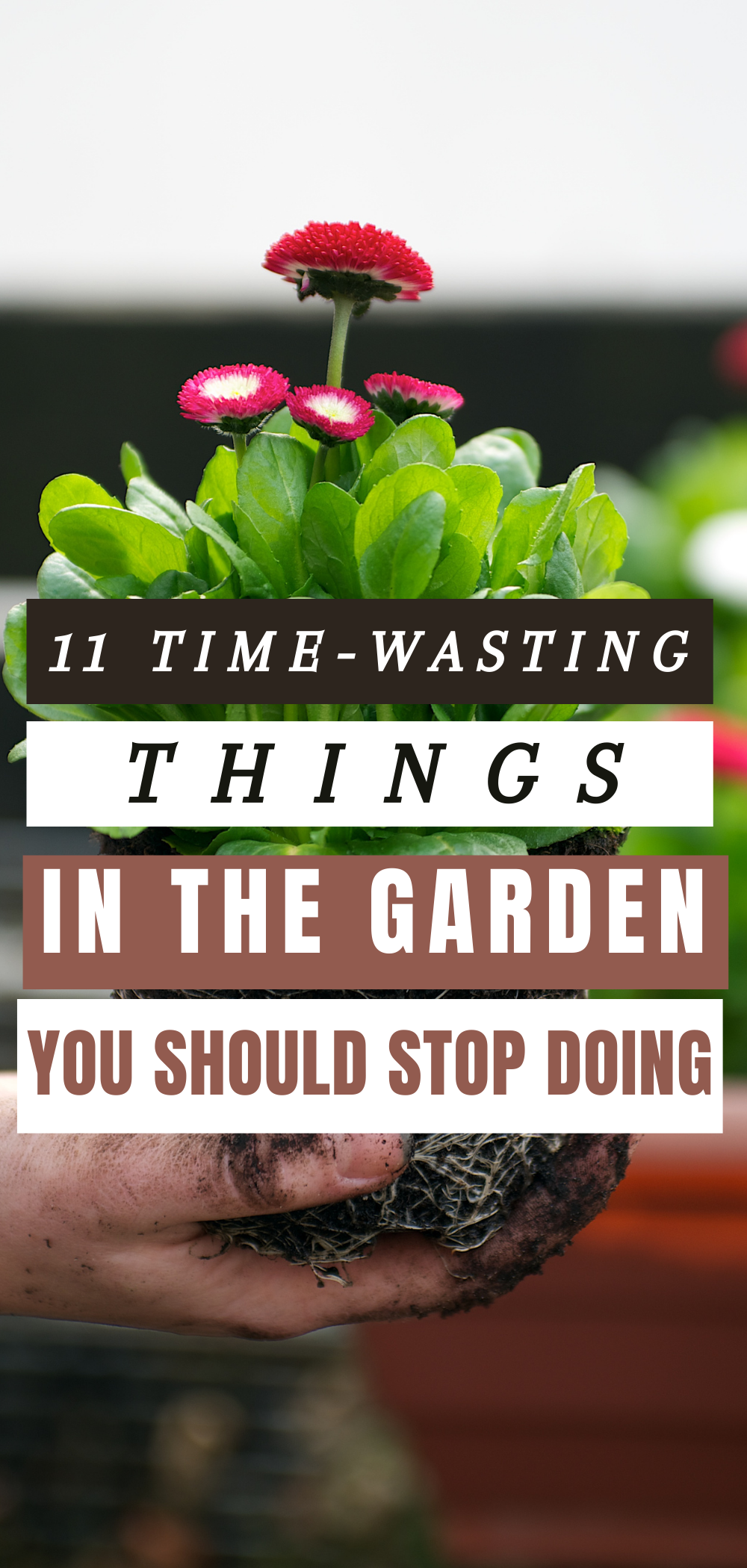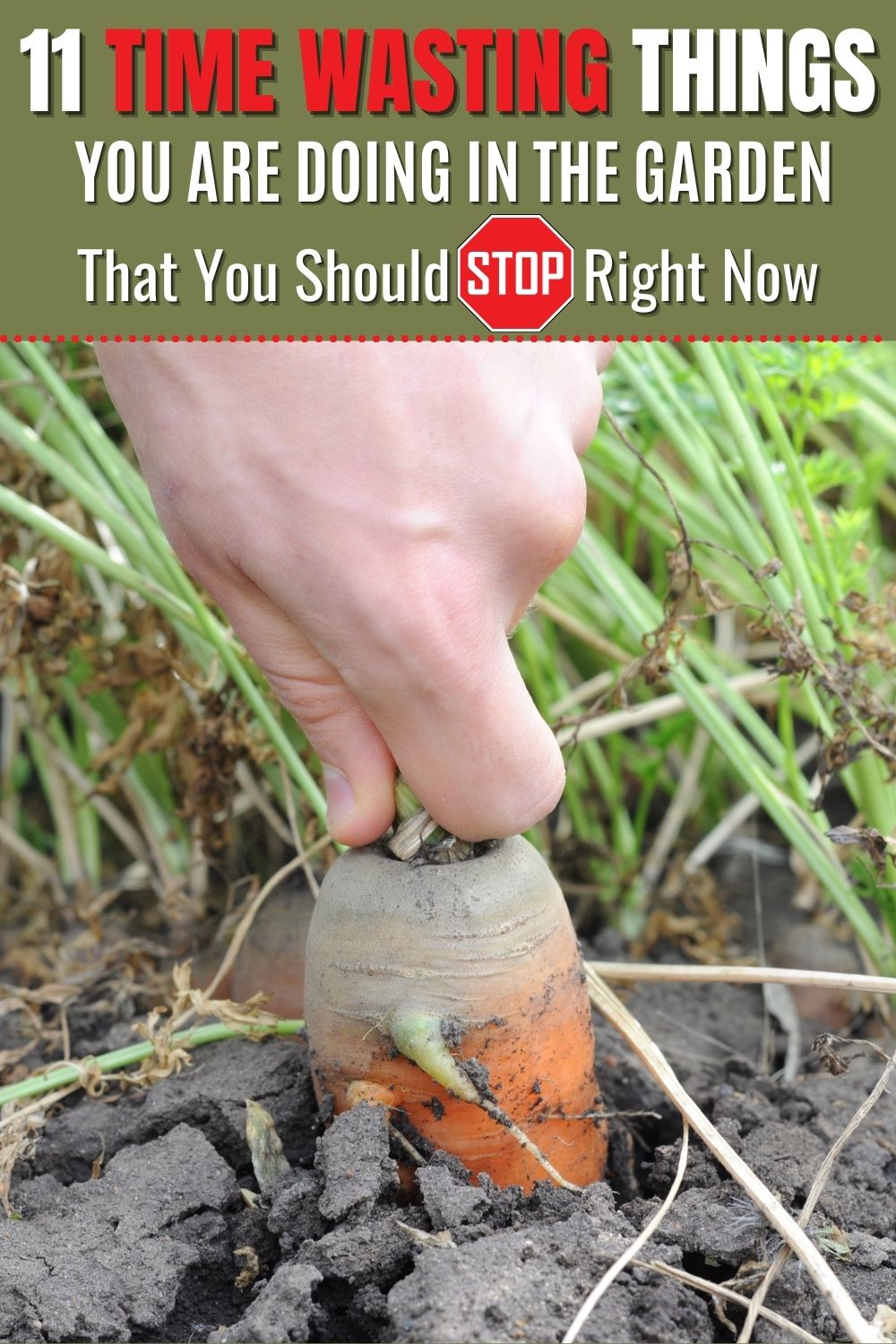GENERAL GARDENING
11 Time Wasting Things You Are Doing In The Garden That You Should Stop Right Now
Do you indulge in a lot of unnecessary gardening chores by force of habit or even ignorance? The time wasted in such activities could be gainfully employed in more practical gardening chores. Check whether you are wasting time and resources on any of the following.
1. Trying to amend the basic nature of your soil
If you garden in an area with limestone, your soil will become alkaline. Similarly, gardens close to woods and in low-lying, waterlogged areas tend to have acidic soil. You shouldn’t waste your time trying to drastically change the basic nature of the soil in your area to suit the plants you want to grow.
Adding urea and plenty of organic matter to alkaline soil or liming acid soils can neutralize the pH but only temporarily, and the effect will not be on the long term.
2. Tilling large areas of the garden
Tilling the land is an old gardening practice to remove weeds, aerate the soil, and mix in compost and other additives. In most situations though, this has been found to be a time wasting activity.
If you till your yard once, you will find that you have to continue doing that over and over again. Ground that is disturbed is taken over by weeds that have been waiting for such an opportunity.
Keep tilling to the minimum. Look at how nature adds organic matter to the top of the soil and still nurtures a large variety of plants.
3. Pulling out all the crops at the end of season
There’s really no need to pull up each and every crop and add it to the garbage or compost pile. Instead, remove the top growth if you must, but leave the roots to decompose in the soil. They help keep the soil aerated and can even enrich it with some nutrients.
4. Overwatering
Plants only need just enough water to keep them hydrated. Overwatering can result in extensive vegetative growth at the expense of yield. It promotes weed growth and depletes the nutrients in the soil.
5. Overfertilizing
Soil enriched with compost and other organic matter usually has all the nutrients plants need.Your plants will appreciate an occasional feeding , but very frequent fertilization increases salt buildup, which can burn the plant tissues. Look out for specific nutrient deficiencies and fertilize accordingly, instead of wasting time and money on routine feeding.

6. Trying to grow vegetables in shade
Most vegetables need full sun to reach their potential in terms of growth and yield. Some may tolerate dappled light if all their other needs are met. There are only a few that will thrive in partial shade, and you’d be hard pressed to find any that do well in complete shade. So, if you intend to grow food, set aside the sunniest spots for the vegetable patch and leave the low-light areas to sweet box, hostas and other ornamentals that will thrive there.
7. Spraying pesticides
A garden is meant to be populated by not only plants but a variety of animal life. Actually, their presence is an indication of the health of your garden. Some insects are pollinators; others act as bio-controls. Avoid spraying with pesticides that kill indiscriminately.
Having said that, we cannot possibly allow a major chunk of the plants and their produce to be devoured by unwelcome guests. Try mechanical and biological controls first, and if that doesn’t seem to have much of an effect, turn to organic pesticides like neem oil that do not harm pollinators.
8. Spraying herbicides
Herbicides seem like an easy alternative to other time-consuming weeding operations, but the action of weed killers that do not harm your plants is limited to existing weeds. That’s why they are called post-emergent herbicides.
They can quickly clear an area for planting, but new weeds will eventually sprout in your beds. You cannot reuse the herbicide unless you’re growing genetically modified herbicide-resistant plants.
9. Trying to grow exotics
Most gardeners are not immune to zone envy, but pampering a few plants––native or introduced––that do well in other areas, but not locally, is often a waste of time and effort. Instead of doing this, why not invest the same on plants guaranteed to thrive in your area.
10. Digging too deep a hole for tree saplings
It is a common myth among people that deep holes help anchor a growing tree better. Saplings planted in holes too large and deep tend to restrict their roots to that area with loose soil. Smaller holes, preferably of larger diameter than depth, force the plant to send out roots in all directions, which would give it more stability in the long run.
11. Trying to discipline bushes
Trying to control the growth and shape of shrubs and trees with frequent pruning can be a futile effort and can actually harm a plant. While infrequent and regular pruning can be helpful, too much of it can be devastating for a plant, particularly a young one.
Select and site plants carefully, keeping in mind their natural form, growth habits, and final size. You can find naturally compact shrubs, conifers with neat columnar form, and small or slow growing trees.

If you want to find more natural remedies, take look at the Everyday Root Book!
With 350+ pages, you will be able to replace all of the toxic products and medications in your home with healthier, all-natural alternatives.
You will be confident in knowing exactly what is in the products your family uses and happy with the money you will save every month.
In addition, they offer you three more bonuses + 75% discount only this month!
GET THE EVERYDAY ROOTS BOOK NOW!
Included in this life changing book are:
- 105+ NATURAL HOME REMEDIES – Treat almost any illness with natural ingredients you probably already have in your kitchen.
- 75+ NATURAL BEAUTY RECIPES -Get the best hair and skin you’ve ever had and look younger with these insanely clever natural beauty recipes.
- 35+ DYI HOUSEHOLD PRODUCTS & CLEANERS – Never Buy Toxic Cleaning products again! Save a fortune and your families health with these super simple homemade cleaning products that work better than the chemical ones.


